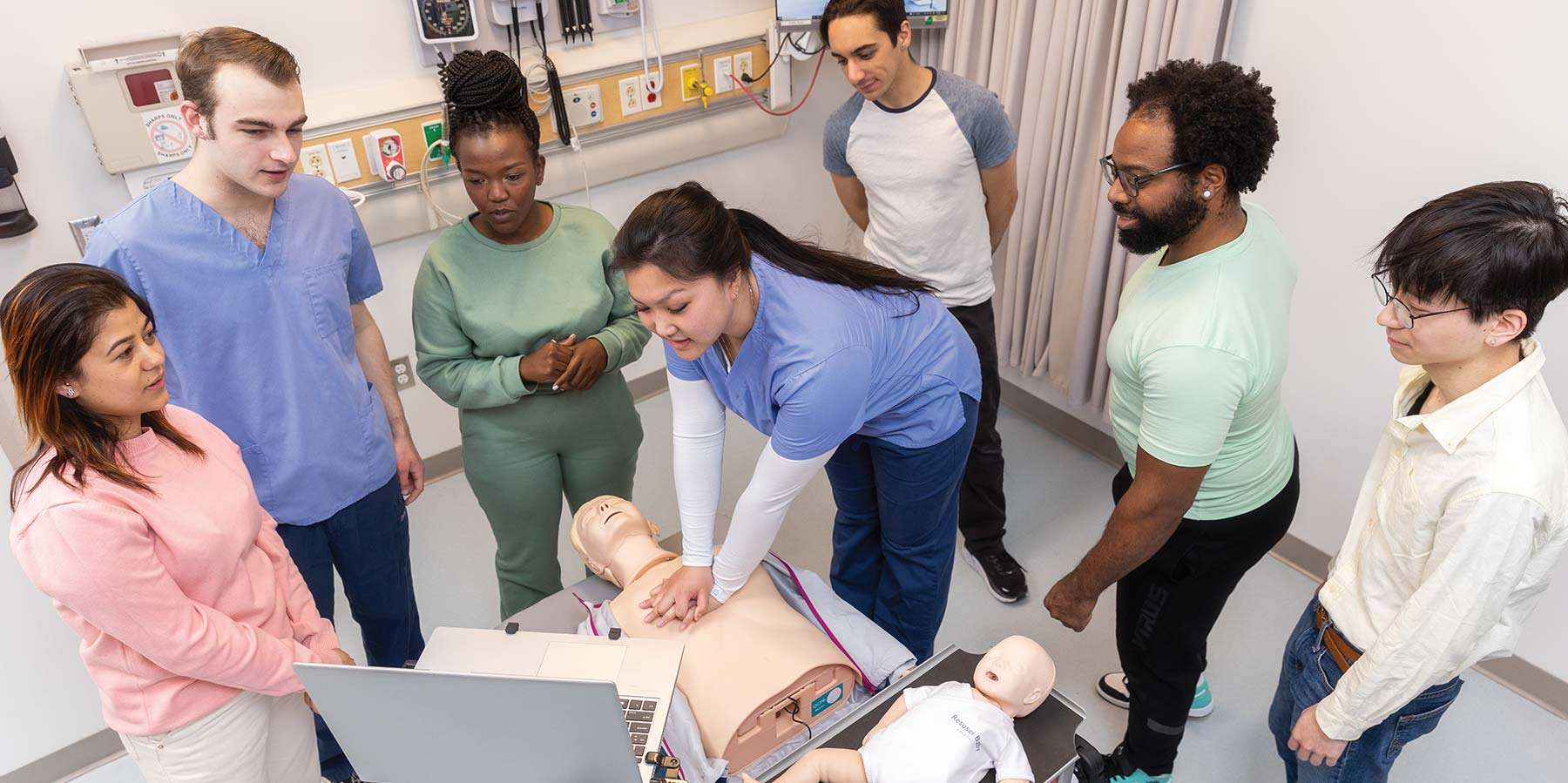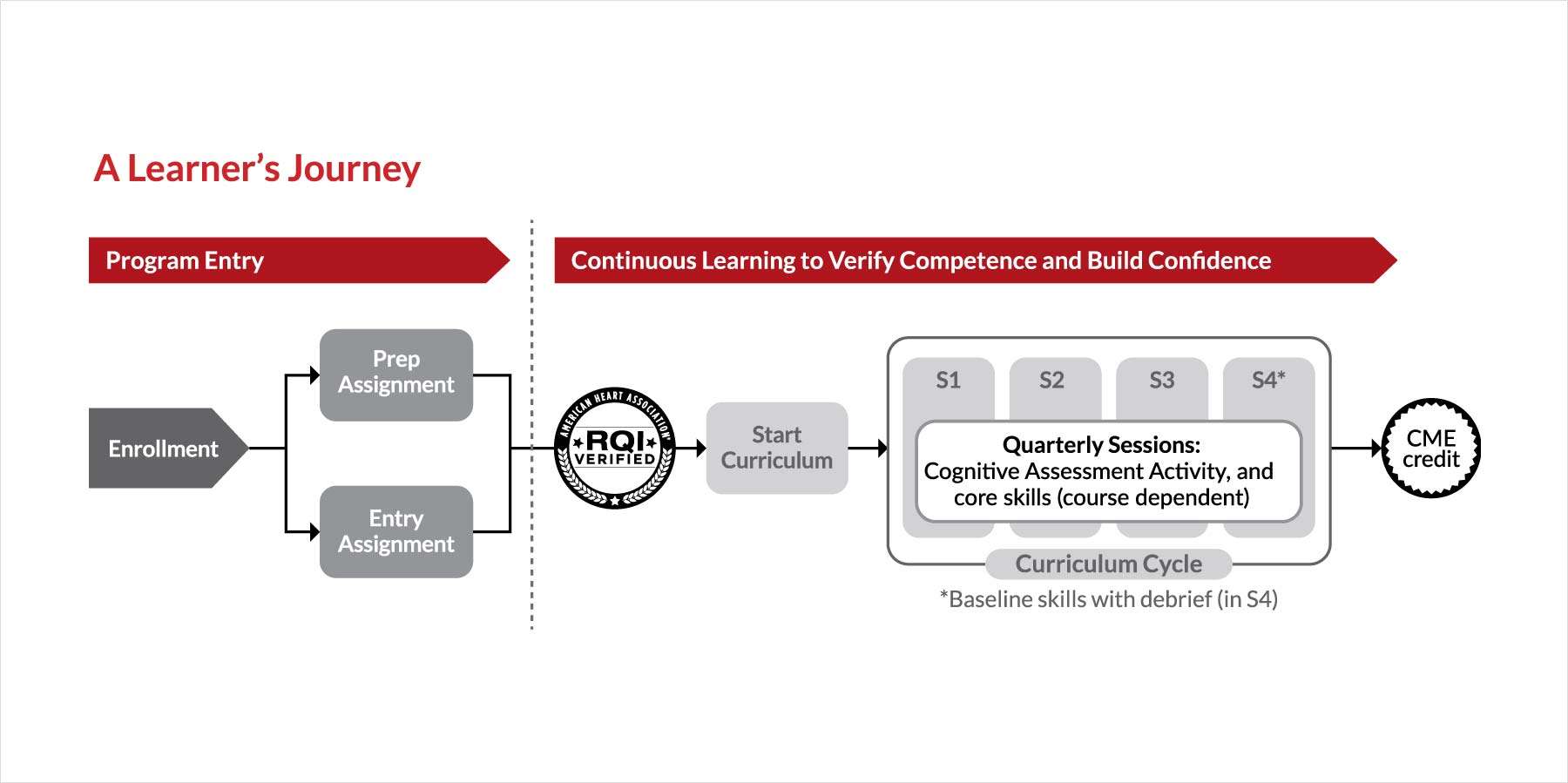How to empower students to perform CPR with competence and confidence? Dr.Oermann explains
4:26
Studies show that resuscitation skill degradation occurs as soon as three months after completing a traditional 2-year resuscitation certification training1 which decreases the chance of survival of patients.
For over 10 years, the Resuscitation Quality Improvement® (RQI®) program has been delivering quarterly high-quality resuscitation skills training in +2,000 hospitals as well as nursing programs. Students with RQI certification demonstrate stronger resuscitation competency going into the workforce which gives them an employment advantage.
1 Oermann MH, et al. Effects of monthly practice on nursing students’ CPR psychomotor skill performance. Resuscitation (2011)
Joseph Chamness, DNP, NP-C, CNE, Clinical Assistant Professor, The University of Alabama in Huntsville
RQI® for Nursing Education is powered by the American Heart Association's grounded educational research and science, and Laerdal's simulation technology with real-time audio and video feedback. Nursing Education Partners committed to excellence in nursing have validated the need to integrate low-dose high-frequency Resuscitation learning in nursing and allied health programs.
Laerdal, American Heart Association, RQI Partners, and the National League for Nursing (NLN) partnered to encourage nursing programs to adopt the RQI for Nursing Education program.
Watch the video to see how 12 NLN member schools have revolutionized their High-Quality CPR training by adopting RQI® for Nursing Education.


Competency-based education
True Adaptive™ Learning helps tailor assessments and learnings to the needs of each student.

Low-dose, high-frequency learning
Frequent (every three months) but short training sessions build muscle memory while fine-tuning skill sets.
This method is proven to increase knowledge retention and aid the development of psychomotor skills necessary to administer high-quality Resuscitation.
As the program can be completed from the station, this also provides students continued access to complete training on their own time.
Discover the impact of Resuscitation Quality Improvement® at Michigan State University Leavitt School of Health.
- Kathleen Poindexter, Ph.D., RN, CNE, ANEF
Interim Associate Dean of Academic Affairs Nursing, Michigan State University, College of Nursing & Chair Elect, National League for Nursing